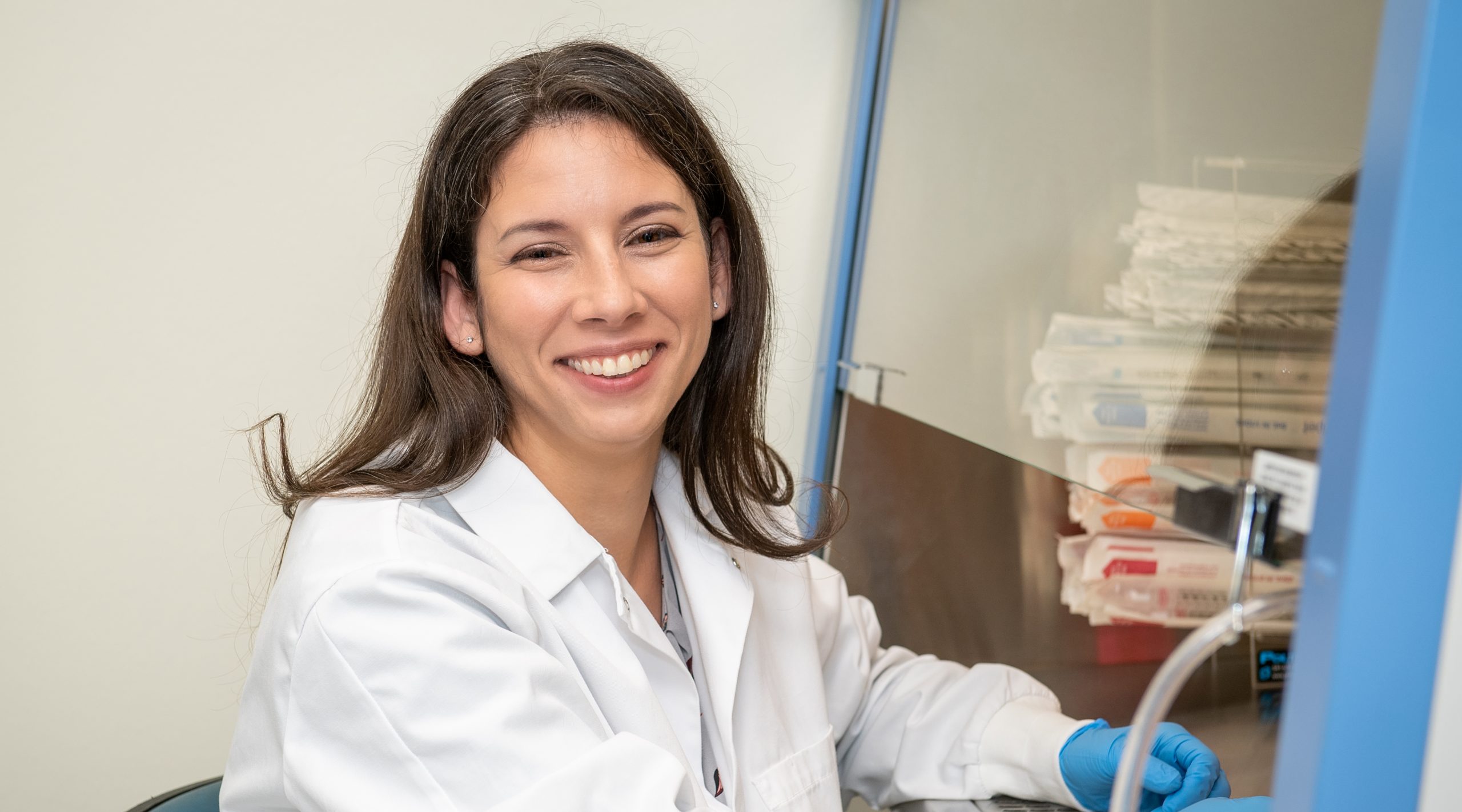Jacquelyn Gorman, Ph.D.
Assistant Professor
Arthritis & Clinical Immunology Research Program
Adjunct Assistant Professor, Department of Microbiology and Immunology, University of Oklahoma Health Sciences Center
My 101
The intricate relationship between genetics and environmental factors, such as viral infections, plays a role in the development of autoimmune disease. The immune system performs a delicate balancing act to protect one’s body from pathogens, while also limiting the risk of attacking its own cells and ultimately developing autoimmunity. However, the switch from protection to harm can still occur, and the reasons for it remain unclear. Our research is focused on understanding how and why this switch occurs, since it can lead to autoimmune diseases like lupus, multiple sclerosis, and type 1 diabetes.
Genome-wide association studies (GWAS) have identified numerous genes that are linked to specific autoimmune diseases. Even though GWAS highlights potentially important genes in autoimmunity, it does not provide a functional relationship between a gene and its associated disease. Many questions remain about how these genes are involved in disease induction, onset, and progression. Specifically, we are focused on identifying the functions of the genetic variants that either predispose or protect an individual from autoimmune diseases. Studying the altered activity of the genetic variants will provide information to help develop new diagnostics and therapies for autoimmune diseases.
Research
Autoimmune pathogenesis involves the sophisticated coordination of genetic and environmental factors. A crucial cornerstone of the network between genetics, the environment, and autoimmunity has been shown to be anti-viral immunity. Further, genome-wide association studies (GWAS) have linked anti-viral immunity to autoimmune diseases. This highlights the balancing act that the immune system has to perform in trying to defend against a pathogen, while restricting the risk of breaking tolerance. However, how and why the switch from protection to injury occurs still remains to be elucidated.
The research in my laboratory focuses on defining mechanisms of autoimmune pathogenesis by genetic variants. We are particularly interested in investigating the relationship between interferons, viruses, and autoimmune disease. We use a multi-model system approach to examine the mechanisms underlying autoimmunity. Our primary focus will be on type 1 diabetes (T1D), systemic lupus erythematosus (SLE), and multiple sclerosis (MS). Ultimately, our long term goal is to illuminate the mechanisms behind autoimmune pathogenesis which will lead to the development of novel therapies and diagnostics for autoimmune diseases.
Brief CV
Education
Ph.D., Mayo Clinic College of Medicine, Rochester, MN, 2012
B.S., Kent State University, Kent, OH, 2006
Honors & Awards
2018 Selected to attend Master Class in the SLE Basic and Clinical Sciences
2017 Keystone Symposium Scholarship-Type I Interferon: Friend and Foe Alike
2016 AAI Trainee Abstract Award
2016 Fellow and Resident Research Day Award, Seattle Children’s Research Institute
2015 Fellow and Resident Research Day Award, Seattle Children’s Research Institute
2006 Graduated Summa Cum Laude, Kent State University
Joined OMRF Scientific Staff in 2019
Publications
Recent Publications
Stock AJ, Gonzalez Paredes P, de Almeida LP, Kosanke SD, Chetlur S, Budde H, Wakenight P, Zwingman TA, Rosen ABI, Allenspach EJ, Millen KJ, Buckner JH, Rawlings DJ, Gorman JA. The IFIH1-A946T risk variant promotes diabetes in a sex-dependent manner. Front Immunol 15:1349601, 2024 February, PMID: 38487540, PMCID: PMC10937421
Selected Publications
Gorman JA, Hundhausen C, Kinsman M, Arkatkar T, Allenspach EJ, Clough C, West SE, Thomas K, Eken A, Khim S, Hale M, Oukka M, Jackson SW, Cerosaletti K, Buckner JH, Rawlings DJ. The TYK2-P1104A Autoimmune Protective Variant Limits Coordinate Signals Required to Generate Specialized T Cell Subsets. Front Immunol. 2019 Jan 25;10:44. PMID: 30740104, PMCID: PMC6355696
Gorman JA, Hundhausen C, Errett JS, Stone AE, Allenspach EJ, Ge Y, Arkatkar T, Clough C, Dai X, Khim S, Pestal K, Liggitt D, Cerosaletti K, Stetson DB, James RG, Oukka M, Concannon P, Gale M Jr, Buckner JH, Rawlings DJ. The A946T variant of the RNA sensor IFIH1 mediates an interferon program that limits viral infection but increases the risk for autoimmunity. Nat Immunol. 2017 Jul;18(7):744-752. PMID: 28553952, PMCID: PMC5697900
Gorman JA, Babich A, Dick CJ, Schoon RA, Koenig A, Gomez TS, Burkhardt JK, Billadeau DD. The cytoskeletal adaptor protein IQGAP1 regulates TCR-mediated signaling and filamentous actin dynamics. J Immunol. 2012 Jun 15;188(12):6135-44. PMID: 22573807, PMCID: PMC3370139
Gomez TS, Gorman JA, de Narvajas AA, Koenig AO, Billadeau DD. Trafficking defects in WASH-knockout fibroblasts originate from collapsed endosomal and lysosomal networks. Mol Biol Cell. 2012 Aug;23(16):3215-28. PMID: 22718907, PMCID: PMC3418315
Contact
Arthritis & Immunology Research Program, MS 53
Oklahoma Medical Research Foundation
825 N.E. 13th Street
Oklahoma City, OK 73104
Phone 1: (405) 271-4947
Phone 2: (405) 271-4957
Fax: (405) 271-7063
E-mail: Jacquelyn-gorman@omrf.org
For media inquiries, please contact OMRF’s Office of Public Affairs at news@omrf.org.
Lab Staff
Garima Tyagi
Research Technician II
Steven Lee
Laboratory Technician
Brian Horton
Administrative Assistant III



